Klein Oak's Callista Escue: I Am Legally Blind — And A WGI Champion
Klein Oak's Callista Escue: I Am Legally Blind — And A WGI Champion
Callista Escue shares her story of perseverance and camaraderie as a member of the WGI Scholastic A world champion Klein Oak High School Color Guard.
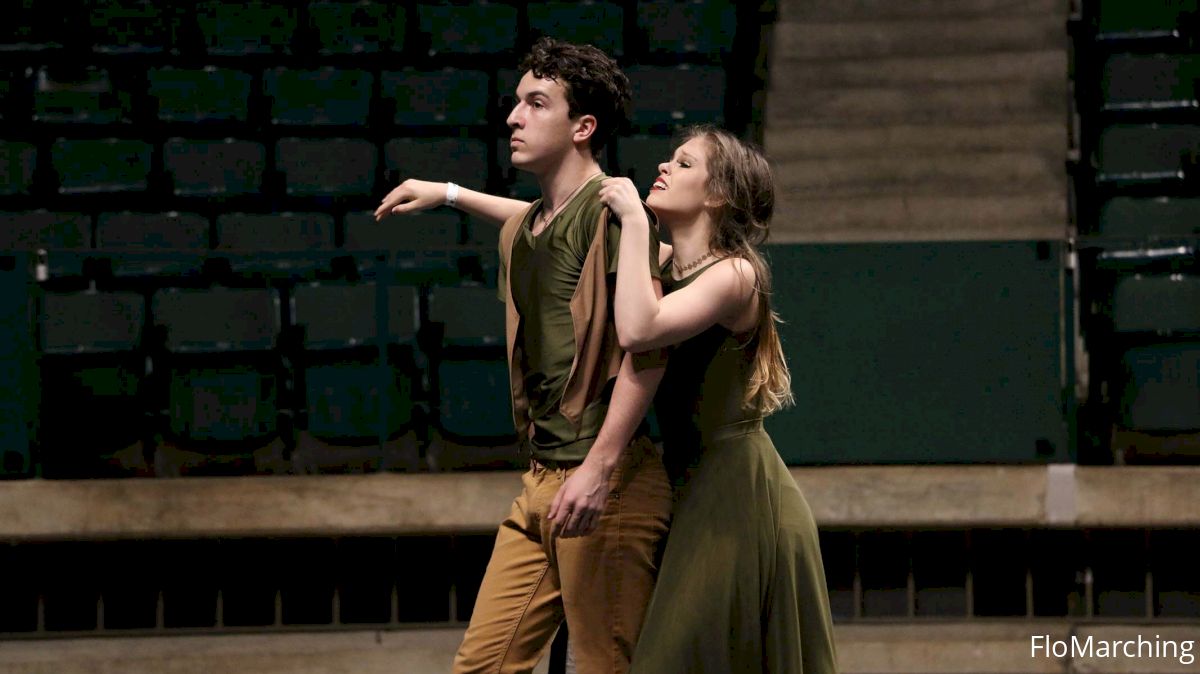
Callista Escue was declared legally blind in November after being diagnosed with a form of juvenile macular degeneration following the start of her senior year of high school. After reaching out to FloMarching, Callista is sharing her story of perseverance and camaraderie as a member of the WGI Scholastic A world champion Klein Oak High School Color Guard.
By Callista Escue
I'm a senior at Klein Oak High School in Spring, Texas, and I've participated in color guard since I was a freshman. From freshman year to junior year, I competed in local marching competitions and the Texas Color Guard Circuit (TCGC), mainly focusing on dance and flag.
I was hesitant to try out for color guard my freshman year. I was like, "There's no way I can do it," because I'd never made anything I'd auditioned for in middle school. The fact that you didn't need any prior experience eased my mind. Something kept telling me, "Just try because you never know," and, sure enough, I made the team.
At first, my teammates were just random people to me, but the more we practiced and the more time we spent at rehearsals, competitions, and socials, the more I got to know them. We spent more time at color guard practice than we did at home. Over the years, I developed a bond with them and got to know them for who they really were. We spent so much time together on the floor we were like a family.
During the last few weeks of the 2016 season, I began to feel overwhelmed because I hadn't started applying to colleges and I'd never had a job, so I decided to not do color guard my senior year. It was one of the hardest decisions I'd ever made. I cried my eyes out during last year's TCGC state championship because I thought it was my going to be my last performance in high school. During my dance solo, I reached out to the crowd and said, "Please let me have one more chance." I was talking about making the finals, but I was also referring to my high school color guard career.
At the last color guard social of the year in June, I swam in a pool for about four hours, and I got a really bad sunburn on my face. It was so bad I could barely talk and I thought I'd damaged my eyeballs because I wasn't able to see the TV in my room very clearly.
'I Didn't See It Coming'
My vision has never been great. I got my first pair of glasses in seventh grade, and I got a new pair during my sophomore year of high school. When I put my glasses on after I'd gotten the sunburn, they weren't as effective as usual, so I asked my mom if I could get a new pair. I thought I just needed a new prescription, but the eye doctor said she couldn't give me one because my vision was too bad for her to help me. She sent me to a specialist, who took pictures of my retinas and showed them to me along with pictures of healthy retinas. They were very different.
The next day, I went to a retina specialist, who injected my arm with a special dye and then took pictures of the inside of my eyes. After examining the pictures, the doctor told me I had Stargardt disease, a genetic disorder that causes progressive damage to the macula and typically occurs during childhood or adolescence. Basically, I was going blind.
When the doctor told me that, it was like a burst of reality hit me ten times in a row. I didn't see it coming. I wasn't upset, but I was kind of scared.
When I got diagnosed with Stargardt disease on September 16, 2016, the vision in my right eye was 20/400 and in my left eye it was 20/60. The doctor told me it would probably be months, possibly even years, before my vision declined any further. But by October my vision had gotten so bad I had to quit the part-time job I had at Whataburger because I couldn't see the numbers on the cash register.
My mom also had to take my car keys away from me. I turned 18 on October 29, and the day before my birthday I drove everywhere because I knew it was going to be the last time for a while.
The next week, my mom called Geico to get me removed from her insurance plan. "Are you sure she's not going to drive?" the lady on the phone asked her. "You can't take her off just because she's grounded." "She's not going to be driving anywhere, I promise you," my mom said. When the lady kept pressing the issue, my mom told her what had happened to me and the Geico lady started crying.
On November 14, I went to the University of Houston Eye Institute, where the doctor confirmed that the vision in both of my eyes was now worse than 20/200.
According to the state of Texas, I was legally blind.
'This Was My Last Chance'
I feel like everything happens for a reason. With my disease, I'm not supposed to spend much time in the sunlight because it can damage my retinas and help the disease progress faster, so it was actually good that I didn't do color guard at the beginning of my senior year.
But I missed it so much! Whenever I saw the videos and photos my color guard friends posted online over the summer, I cried. During the first week of school my senior year, I asked the color guard director Stephanie Chavez if I could get back on the team. She told me she would talk to the band director and get back to me. Then a week later I found out I had Stargardt disease.
As devastated as I was, I wasn't going to let it stop me from doing what I love, so I asked Ms. Chavez if I could try out for winter guard, which wouldn't hurt my eyes because it's indoors. There's an unspoken rule at our high school that if you ever leave the team you can't return until the following year, but I couldn't wait a year. I was a senior. This was my last chance.

Klein Oak following their performance at the WGI Southwestern Power Regional in Denton, Texas
One day in class, a girl said to me, "I signed your petition." I didn't know what she was talking about. "There's a petition going around color guard so you can come back for winter guard," she said. "Everybody signed it." The team had voted and agreed to let me try out for varsity winter guard, and I made the team!
A lot of people wonder how I can still do color guard if I'm legally blind. My vision started declining a long time ago without me even realizing it, so I learned to compensate for my poor eyesight in other ways. A lot of it's muscle memory. For flag, I can still turn over my tosses and I can still catch everything, but I didn't get a flag this year because the coaches wanted to give it to a younger girl so she could get some experience. I was fine with this decision because it allowed me to focus on dance, which I love.
During drills, I always stand in the front and rely on the people around me. We had cups and boards with numbers on them at the front for winter guard, but I obviously couldn't use those because I couldn't see that far.
'You Have To Be Positive'
We weren't supposed to go to the Winter Guard International (WGI) World Championships in Dayton, Ohio this year. Our season was scheduled to end in March. But after we finished second at the WGI Regional in Houston in February, losing by less than a point despite not having our uniforms or flags, we found out that if we did well at the WGI Regional in San Antonio later in the month, there was a chance we could go to Dayton for the World Championships. When we came in first in San Antonio, the band directors, the parents, everybody started trying to figure out how to get us to Dayton. When they told us we were going, we were ecstatic, especially the seniors. Most of us were crying happy tears.
In Dayton, we finished first in the prelims, the semifinals, and the finals, making us the 2017 Scholastic A champions! To be a part of that and know that I wasn't even supposed to be there was incredible. I'm legally blind and I still got on the floor and poured my heart and soul into every performance and helped my team get the gold medal!

Klein Oak members celebrate with director Stephanie Chavez after winning a WGI World Championship
If I were to give any advice to people with a disability like mine, I would tell them they can still do whatever they set their minds to. You have to be positive; otherwise, you won't be able to do anything in life. If you truly love something, you'll find a way to make it work. You can't let a physical impairment stop you. After getting this diagnosis, I could have used it as an excuse to quit color guard. I could have walked away from what I love most and never looked back. But I didn't. I'm legally blind, but I still spin my flag, dance, and do tosses and tricks.
I want to share my story because I know there are other people out there who are facing their own struggles but choose to sit on the sidelines because they believe they can't overcome them. I want to tell these people that they don't have to be afraid and to inspire them to try anyway. Even when life deals you a bad hand, you still get to choose how to respond to it. You can choose to let it take you down, or you can get on the floor and come home with a gold medal!
In the fall, Callista will be attending Texas State University, where she hopes to continue doing color guard.
Join The Conversation On Social
•Follow us on Twitter @FloMarching
•Follow us on Instagram @FloMarching
•Follow us on Facebook
Related Content
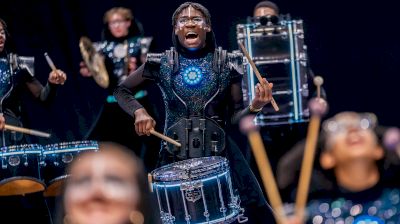 WGI World Championship 2024: Guard, Winds And Percussion Champions
WGI World Championship 2024: Guard, Winds And Percussion ChampionsApr 22, 2024
 WGI Scores 2024: WGI World Championship Percussion, Winds Results
WGI Scores 2024: WGI World Championship Percussion, Winds ResultsApr 21, 2024
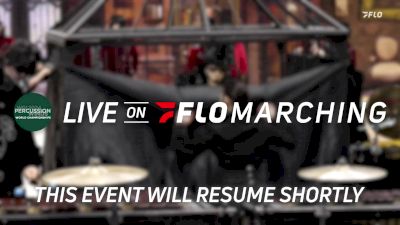 Replay: UD Arena (Multicam) - 2024 WGI Percussion/Winds World Championships | Apr 21 @ 9 AM
Replay: UD Arena (Multicam) - 2024 WGI Percussion/Winds World Championships | Apr 21 @ 9 AMApr 21, 2024
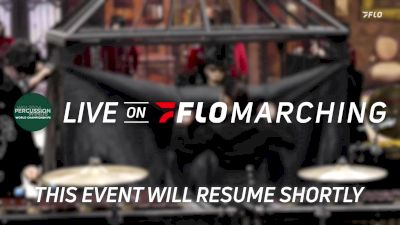 Replay: UD Arena (Highcam) - 2024 WGI Percussion/Winds World Championships | Apr 21 @ 9 AM
Replay: UD Arena (Highcam) - 2024 WGI Percussion/Winds World Championships | Apr 21 @ 9 AMApr 21, 2024
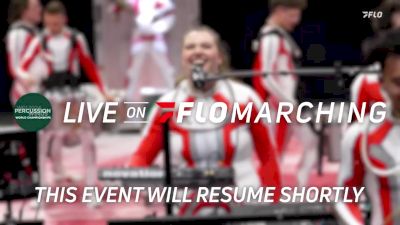 Replay: UD Arena (Multicam) - 2024 WGI Percussion/Winds World Championships | Apr 20 @ 9 AM
Replay: UD Arena (Multicam) - 2024 WGI Percussion/Winds World Championships | Apr 20 @ 9 AMApr 21, 2024
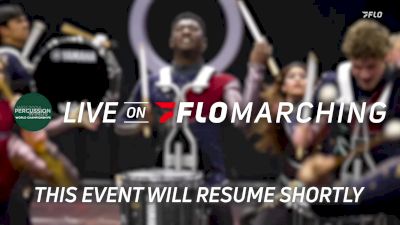 Replay: UD Arena (Highcam) - 2024 WGI Percussion/Winds World Championships | Apr 20 @ 9 AM
Replay: UD Arena (Highcam) - 2024 WGI Percussion/Winds World Championships | Apr 20 @ 9 AMApr 21, 2024
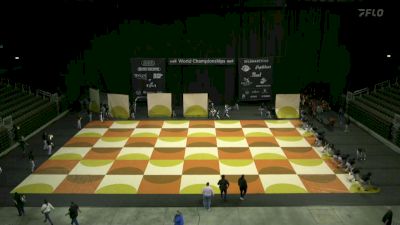 Replay: Truist Arena - 2024 WGI Percussion/Winds World Championships | Apr 20 @ 9 AM
Replay: Truist Arena - 2024 WGI Percussion/Winds World Championships | Apr 20 @ 9 AMApr 20, 2024
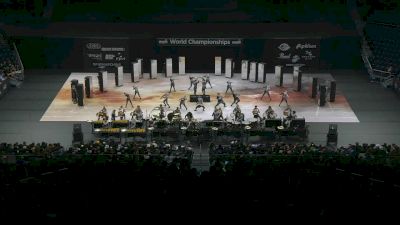 Replay: UD Arena (Highcam) - 2024 WGI Percussion/Winds World Championships | Apr 19 @ 9 AM
Replay: UD Arena (Highcam) - 2024 WGI Percussion/Winds World Championships | Apr 19 @ 9 AMApr 20, 2024
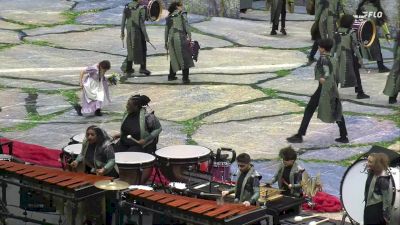 Replay: UD Arena (Multicam) - 2024 WGI Percussion/Winds World Championships | Apr 19 @ 5 PM
Replay: UD Arena (Multicam) - 2024 WGI Percussion/Winds World Championships | Apr 19 @ 5 PMApr 20, 2024